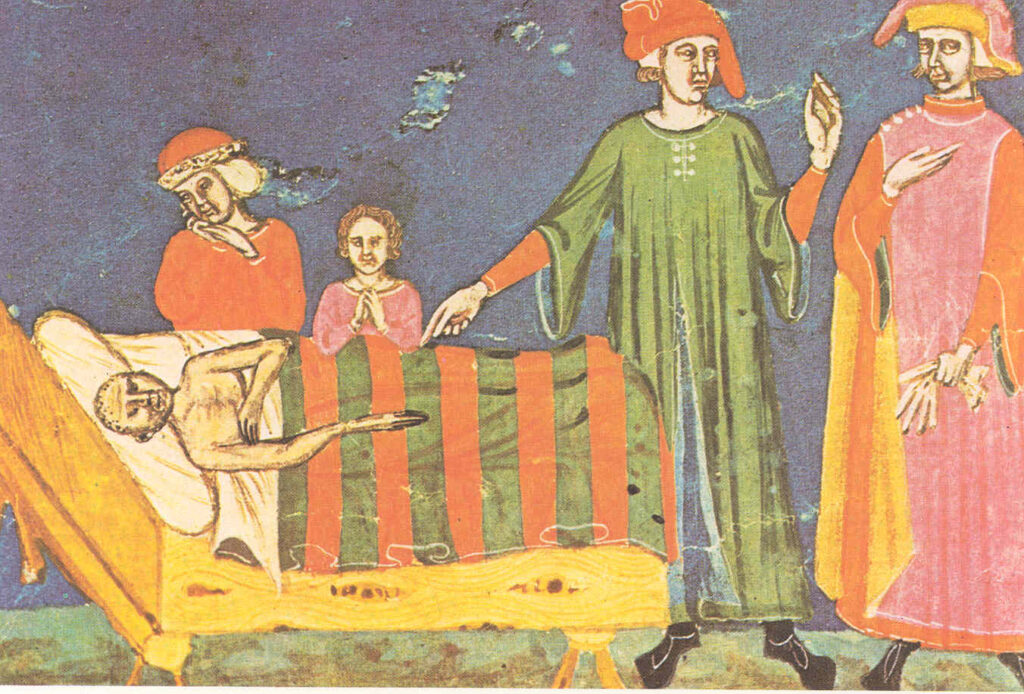Rural History Conference 2025. 7th biennial conference of the European Rural History Organisation (EURHO):
Call for Papers for Panel S45-Exploring demographic patterns, epidemics and mortality crises in the rural communities of Late Medieval Northwestern Mediterranean
9-12 septiembre 2025
Coimbra (Portugal)
https://ruralhistory2025.org/call-for-papers/
Session organizers:
Pere Benito Monclús – University of Lleida
Albert Reixach Sala – University of Lleida
Deadline for paper proposals: 20 January 2025
Notification of accepted papers: 14 February 2025
This session deals with the effects that mortality crises due to epidemics, famines, wars or other disasters had on the demography and economy of rural communities in different areas of Northwestern Mediterranean from the Black Death to mid-16th century. It specially aims to reexamine through several case studies a topic pivotal in the traditional understanding of the evolution of Late Medieval countryside and the period in general. As it is generally agreed, the lethal plague ravaging Eurasia from 1347 to 1351 and successive outbreaks from the following decades onwards, combined with other disorders, gave place to new dynamics in population, economy and society. On the one hand, the change of trend during the 15th century in the universal nature of epidemic diseases and greater social selectivity has been challenged (Curtis 2020). Related to that, by contrast, it has been assumed that the pandemic between 1347-51 (and generally omitting the possible role of later outbursts) fuelled parallel transformations in family models, marriage and fertility and birth patterns (Edwards & Ogilvie 2022). On the other hand, a wide range of economic processes have been attributed to epidemics (admittedly, almost always limiting the protagonism to the Black Death), food crises or wars during the 14-15th centuries. Firstly, these phenomena have been highlighted for their distributive outcomes with respect to inequalities and social mobility (Alfani 2021), although traditional views on the evolution of stratification in peasant communities have not always been interpreted in terms of “equaliser” (Bois 2000). At any rate, abundant literature on Western Europe as a whole has explored the role of mortality crises caused by the aforementioned disasters both for the dominant groups (impact on manorial income and possible reactions as a result) and the peasant majority (changes in wages trends, living standards, etc.). Going even further, there has been no hesitation in proposing the demographic crisis caused by Black Death (again, without taking into account subsequent epidemic episodes or other events) as a trigger for large-scale phenomena such as the emergence of capitalism (Benedictow 2021, Belich 2022) or divergent trajectories between West and East or Northern and Southern Europe (Pamuk 2007, Pleijt & van Zanden 2016). Nonetheless, the empirical basis on which many hypotheses or historiographical proposals are based, at least for the western dominions of northeastern Iberia and other nearby Western Mediterranean territories, presents important shortcomings and asymmetries. Therefore, a thorough revision is necessary, starting from the archival documentation itself. Seeing that, the proposed session seeks to deepen the following points on the demographic and economic impact of mortality crises in rural society from mid-14th century to mid-16th century: 1) the specific chronological sequence and geography of mortality crises arising from epidemics and other catastrophes; 2) the interaction between different reasons and variables leading to these crises; 3) the employment of serial sources (both direct evidence from records of deaths or burials or indirect evidence mainly from wills) for estimating the absolute and relative demographic effects of epidemics and other disasters; 4) the possible sex and social selectivity of mortality crises; 5) parameters on the evolution of the composition and dimensions of family units, key to correctly quantify figures of population of different territories or communities, as well as possible changing and diverging patterns in the general demographic dynamics of pre-modern Europe.
In case you are interested, please send an email with a provisional title and a short abstract (200 words maximum) to the session organizers. You will then be informed of the mechanism for submitting your application to the conference platform.

